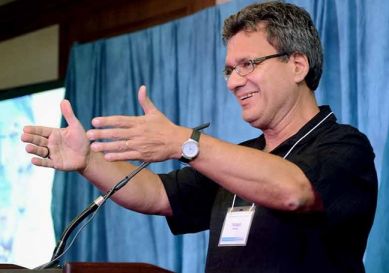UMC Mission Leader Says 'God Still Wants to Transform Us'

The United Methodist Church's global mission leader told missionaries at the start of a conference on Thursday that God is still seeking to transform each individual and communities.
A United Methodist Mission conference for young adults kicked off on Thursday with a call during the opening worship service for participants to come to Jesus as "living stones," "rejected by mortals yet chosen and precious in God's sight."
Thomas Kemper, general secretary of the denomination's mission agency, Global Ministries, gave a message to about 150 participants in Arlington, Virginia. The conference is celebrating young adults in mission.
In attendance were current and former members of the US-2 program, as well as Mission Interns. The US-2 program offers leadership development through peace and justice ministries at U.S.-based community organizations for people ages 20 to 30. Both programs commit to linking faith to justice.
US-2s serve for two years while Mission Interns serve for three years, approximately half the time in their home country.
Kemper's message was on the conference's theme, which includes the passage from 1 Peter 2:1-10. The scripture anchoring the conference is from verses 4 and 5 of the passage:
"Come to him, a living stone, though rejected by mortals yet chosen and precious in God's sight, and like living stones, let yourself be built into a spiritual house, to be a holy priesthood, to offer spiritual sacrifices acceptable to God through Jesus Christ." (NRSV)
Kemper asked: "How did the writer come up with the idea of living stones?"
He argued that while stones do not move or grow or have dreams, they become alive by carrying memory. He referred to stones of Europe's cathedrals rich with memory and stones a person might bring with them after returning from a trip. He also said stones can be linked to diversity, because stone walls can stand for centuries even through every stone is unique. That resonates with the Wesleyan idea that everyone is included in the love of God, he said.
He said the Methodist community is built on the cornerstone of Jesus.
"Jesus rejected, resurrected, and becoming the living stone," he said.
Kemper encouraged participants to celebrate, noting the history of US-2s and Mission interns is one of transformation, both for individuals and communities.
"God still wants to transforms us," said Kemper. "Another world is possible, because God is still at work."